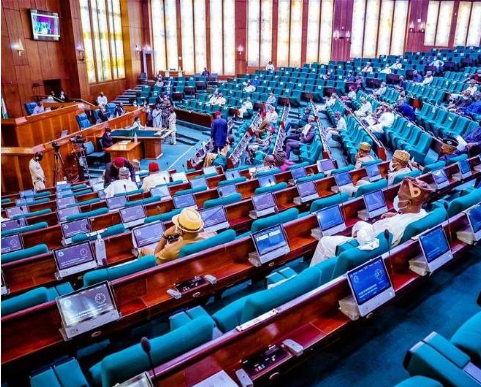House Of Representatives To Probe Non-Delivery of Tractors, Harvesters Under Food Security Initiative

The House of Representatives has directed its Committee on Agricultural Production and Services to investigate the non-delivery of 2,000 tractors and 100 combined harvesters under the Presidential Food Security Initiative and the Hope Agricultural Mechanisation Drive, despite the signing of a N3 billion agreement.
The House also mandated the committee to look into the N138.61 billion agreement between the Federal Government and AFTRADE DMCC for the establishment of a tractor assembly plant in Nigeria. The resolution was adopted on Tuesday following a motion moved by Saba Adam, representing Edu/Moro/Patigi Federal Constituency, Kwara State, during plenary.
Background to the Motion
Shortly after assuming office, President Bola Ahmed Tinubu declared a state of emergency on food security, identifying agricultural mechanization as a critical tool to increase food production and address rising food inflation, which has led to widespread hunger across the country.
In presenting the motion, Saba Adam explained that the Federal Ministry of Agriculture and Food Security had signed an agreement with John Deere Tractors for the annual supply of:
•2,000 tractors and implements
•100 combined harvesters
This contract, valued at $70.042 million (approximately N3 billion), also covered sales, after-sales services, spare parts, and training for mechanized service providers.
Additionally, Adam highlighted another agreement involving a five-year deal with AFTRADE DMCC to establish a tractor assembly plant in Nigeria. This plant was expected to produce:
•9,022 agricultural implements
•2,000 Belarus tractors annually
The agreement was estimated to cost $684.19 million and N138.61 billion for equipment, delivery, and assembly.
Non-Delivery: A Setback to Agricultural Mechanization
Despite the significant financial investments and the promises under these agreements, Adam lamented that no tractors, harvesters, or implements had been delivered to Nigeria a year after signing the deals.
“The non-delivery of these tractors and implements is a setback to the Renewed Hope Agenda in agricultural mechanization and poses a challenge to Nigeria’s food sufficiency ambition, as two farming seasons have been lost since the signing of the agreements,” Adam noted.
He emphasized that implementing these agreements would yield numerous benefits for the country, including increased agricultural production, technology transfer, and reduced reliance on foreign exchange for the procurement of ready-made equipment.
House Mandate and Action Plan
The motion received overwhelming support from lawmakers, prompting the House, under the leadership of Speaker Tajudeen Abbas, to resolve as follows:
1.The Committee on Agricultural Production and Services will investigate the non-delivery of the tractors, implements, and combined harvesters within the stipulated period.
2.The committee will inquire about the status of the proposed tractor assembly plants in line with the agreements.
3.The committee will probe the procurement and distribution of farm implements under the Federal Department of Agriculture and the Ministry of Agriculture and Food Security.
The committee is expected to report its findings within four weeks for further legislative action.
Implications
The investigation underscores the growing concerns about accountability and transparency in public-funded agreements aimed at addressing Nigeria’s food security challenges. The failure to implement these initiatives not only hampers the government’s Renewed Hope Agenda but also delays critical solutions needed to combat food inflation and enhance agricultural productivity.
The House’s probe is seen as a necessary step toward ensuring that agreements of such magnitude deliver on their promises, particularly as Nigeria strives to achieve food sufficiency and economic stability through agricultural mechanization.



